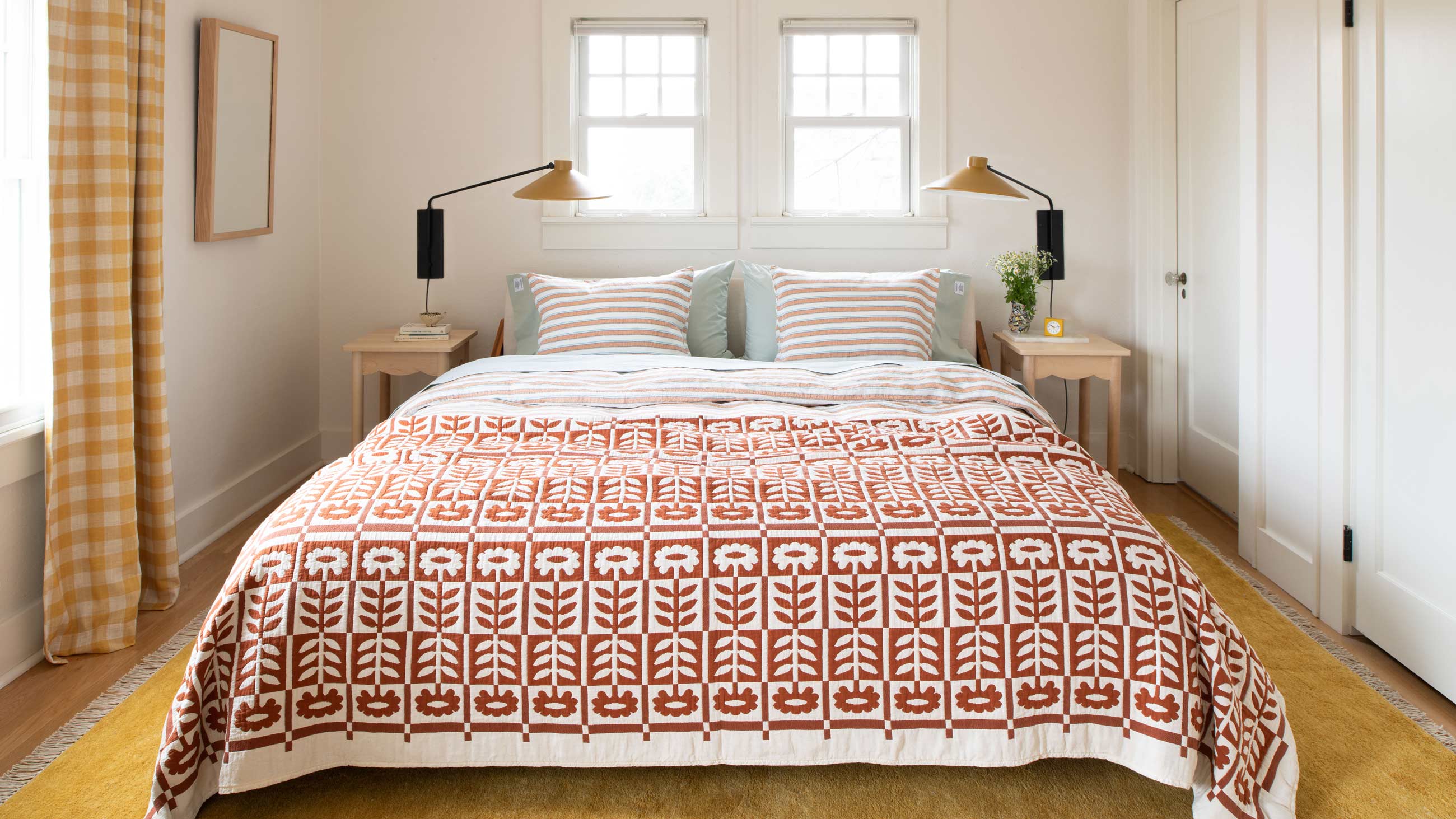How-To: Proper Wall Sconce Placement
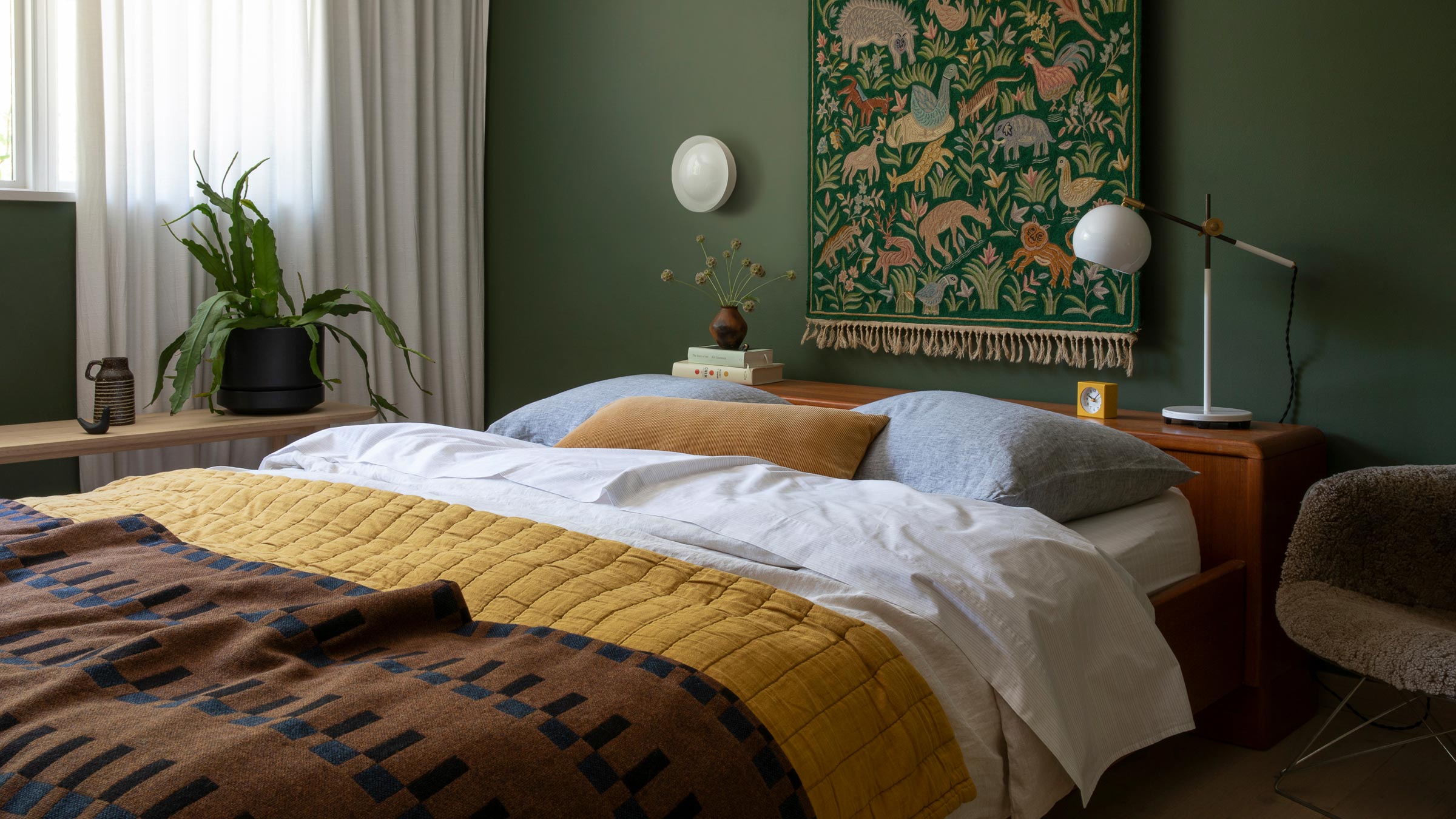
Lighting brings certainty to a space. It clearly defines hidden corners and highlights important design details while cohesively creating purpose to the room it illuminates. A well-placed light fixture has the power to shape the way a room looks and feels. But understanding how to layer lighting and create visual variety can be challenging. As with most things, balance is important, which is why after all the surface mounts and pendants are hung, we look to the small and mighty wall sconce to add that finishing touch.
Many people would agree that when it comes to selecting sconces, the first step is to find the perfect style and finish to complement their space. While this is certainly true, it is equally important to consider placement and functionality, which is the part most people find challenging. While there are no hard and fast rules, we have a few guidelines we tend to stick to when it comes to installing wall sconces, and we thought we’d share them below.

Bedroom
When it comes to the bedroom, it’s all about determining the proper location based on function. If you’re a nighttime reader, you’ll want to make sure the sconces are intentionally placed so that you can read comfortably. We recommend getting in bed and assuming your normal resting position.
From there, measure a few inches above your shoulder. Traditionally, this has measured to be about 5’ above the ground, but since bed height varies this may not always be the case. Be sure to take individual measurements into consideration as well and land on a height that works for everyone.
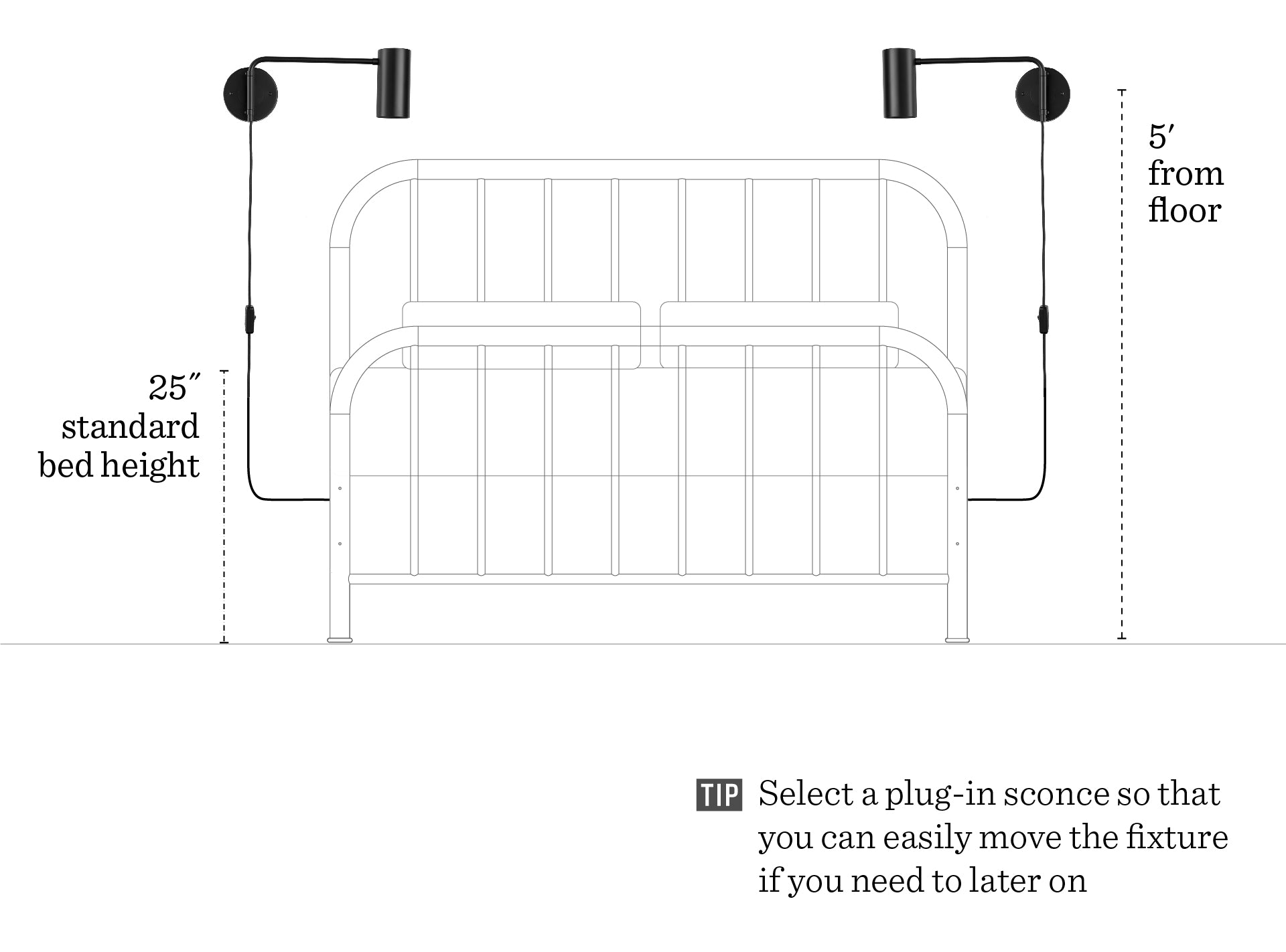

Ideally, the fixture will be close enough that you can easily reach the switch or adjust the light if the sconce is multi-directional. In the photo above, the Envoy Swing Plug-in Sconce is just over 4’ above the floor. Since the sconce swings to either side, we felt that we could install it lower than 5' for optimal reading height.


Kitchen
Since brightness is especially crucial in this area of the house, we recommend complementing ceiling-mounted fixtures with wall sconces. This will ensure that you have ample light to perform daily tasks comfortably at any time of the day. When installing task lighting, you’ll generally want to measure 60” from the floor or a minimum of 24” from the countertop.




Many times, where you decide to place your kitchen sconces will depend on the existing features of the house. Make a mental list of your favorite kitchen characteristics and use wall lighting to work with the natural shape of the room.

Bathroom
There are so many different ways to light a bathroom, and it really comes down to personal preference. Generally, we recommend placing wall sconces near a mirror as task lighting. When installing sconces on either side of the vanity, it’s best to install bathroom sconces between 60”-65” from the floor.
The height of the sconce should land just around eye level, preventing unflattering shadows or harsh glares. If you decide to place your sconce above the mirror, we recommend installing it between 75”- 80” above the ground depending on the placement of the mirror. This ensures optimal light coverage for daily routines. When it comes to the bathroom, the more lighting the better, so don’t be afraid to choose larger scaled fixtures if space allows.



Entryway
As a general rule of thumb, wall sconces are installed between 60”- 72” from the finished floor. Depending on the layout of your house, you can also install multiple fixtures down your hallway. When it comes to horizontal spacing, sconces are traditionally 6’ apart. But keep in mind that the six-foot rule may not always apply. Placement depends on how long your hallway is and if any other architectural features (such as vaulted ceilings, doorways, etc.) factor in.


 Via lindseybadenhop
Via lindseybadenhop
Wall sconces are versatile fixtures that can also function as accent lights for dining rooms, reading nooks, mudrooms, and porches. No matter the function, we encourage you to get creative – have fun with it and don’t limit yourself to the traditional norms.



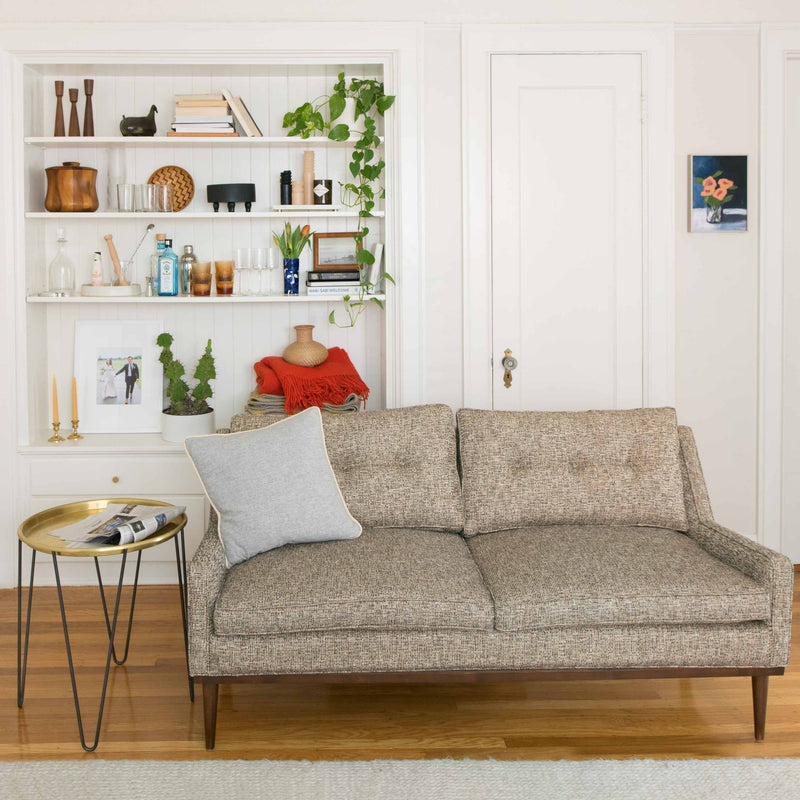

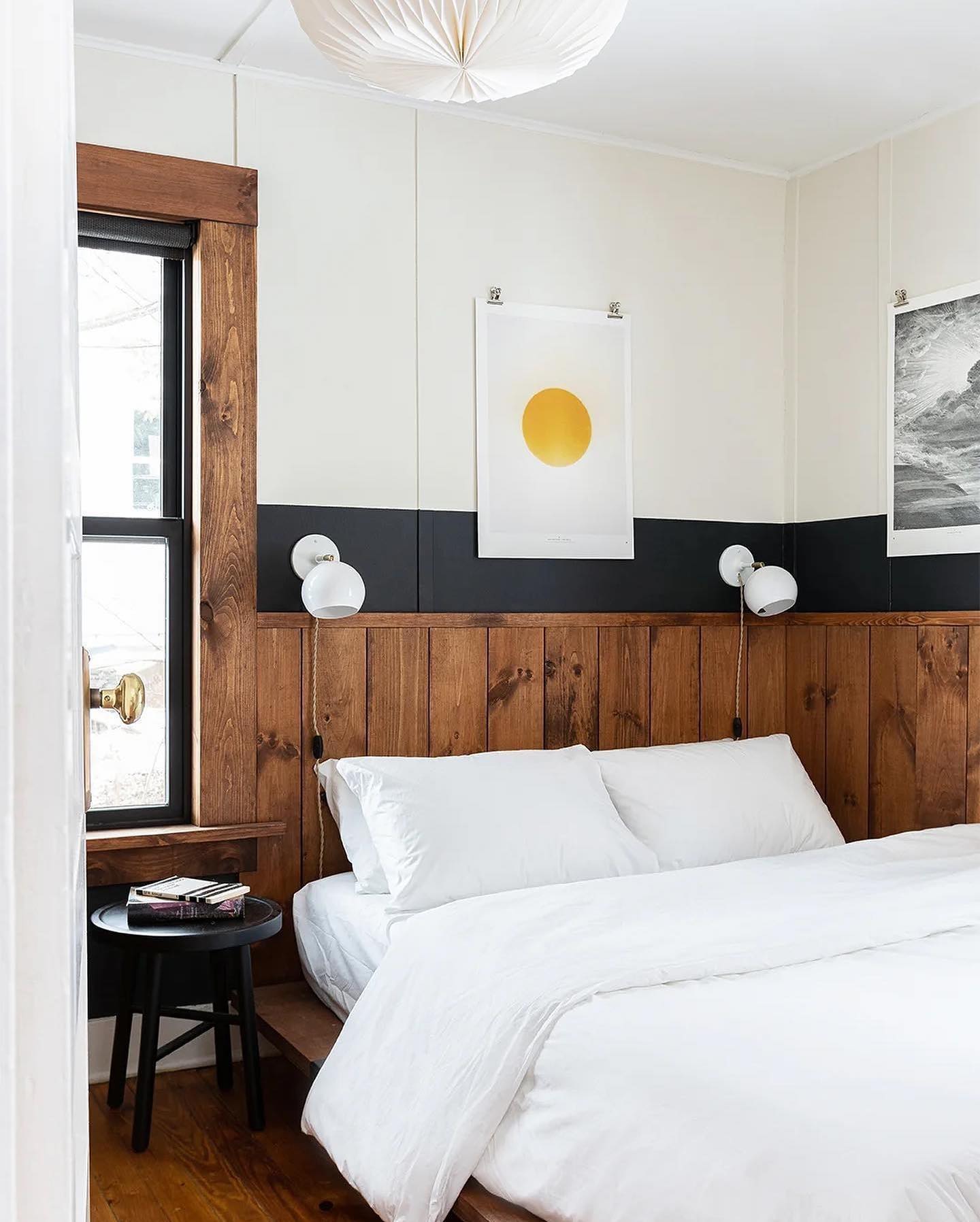 Via
Via 